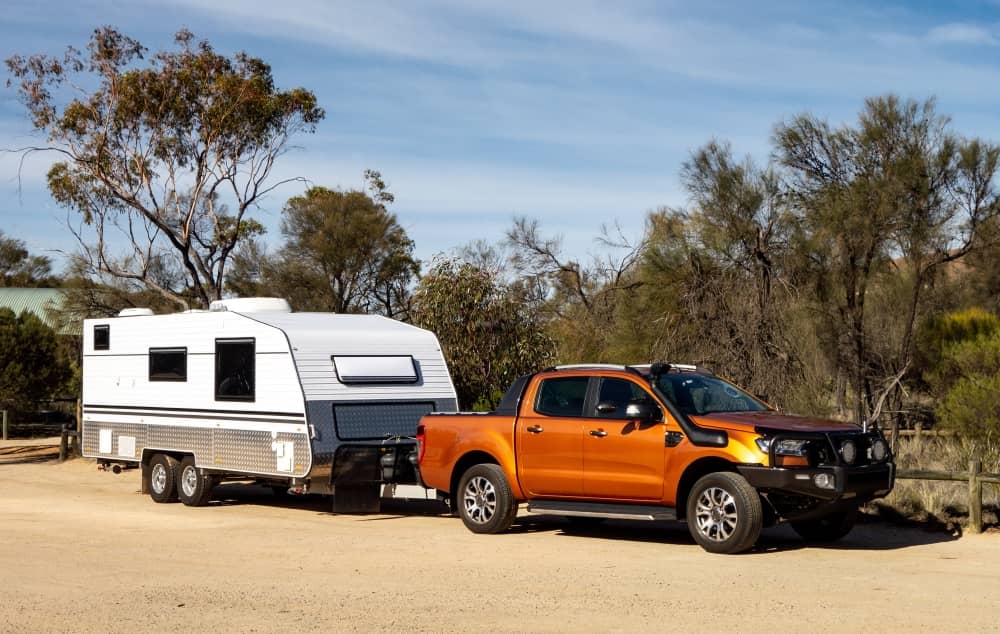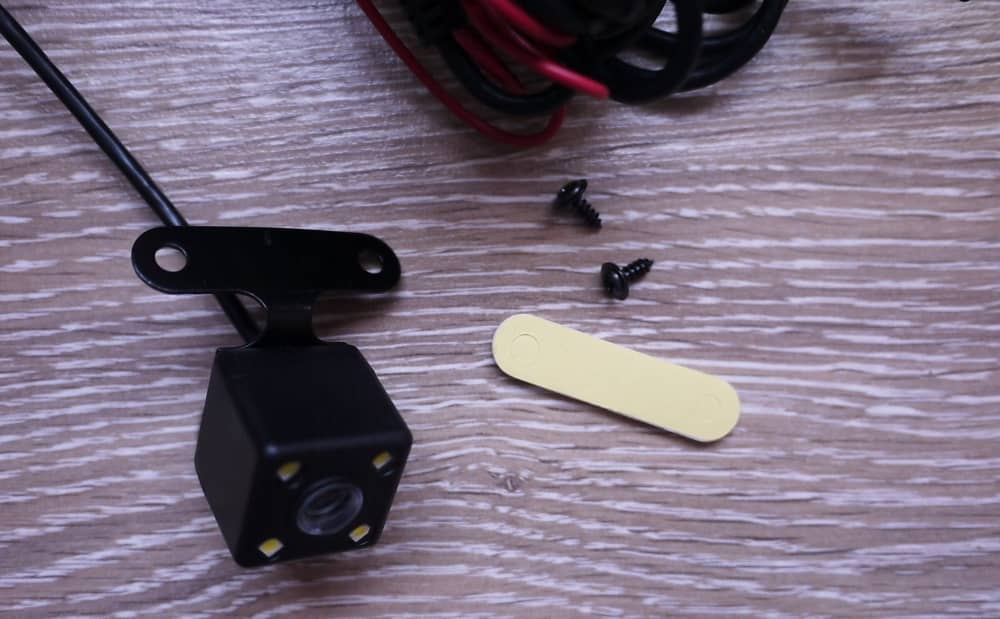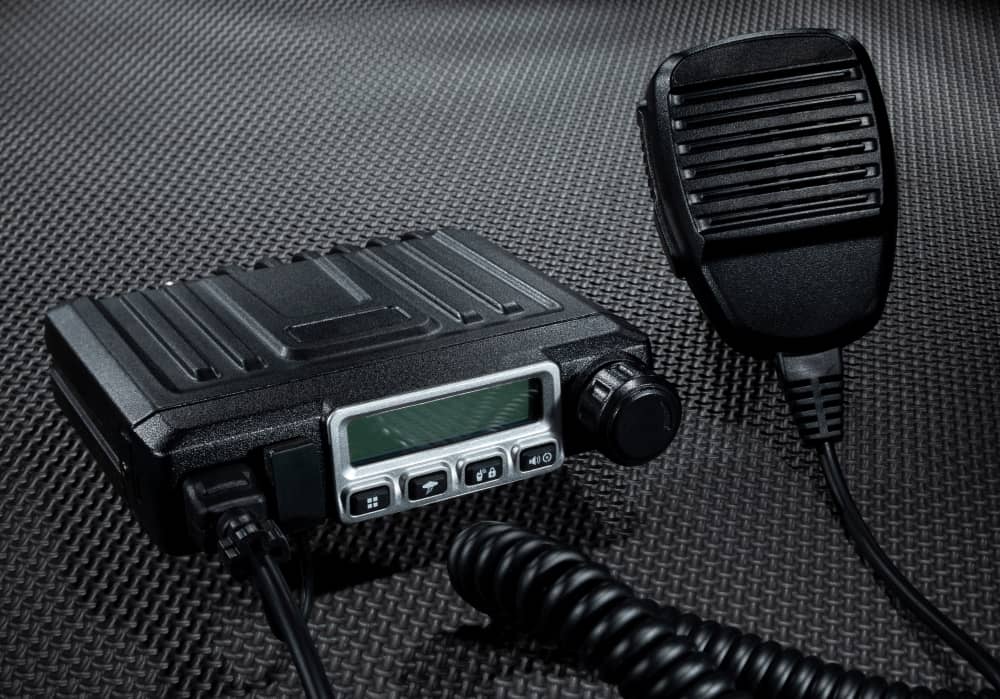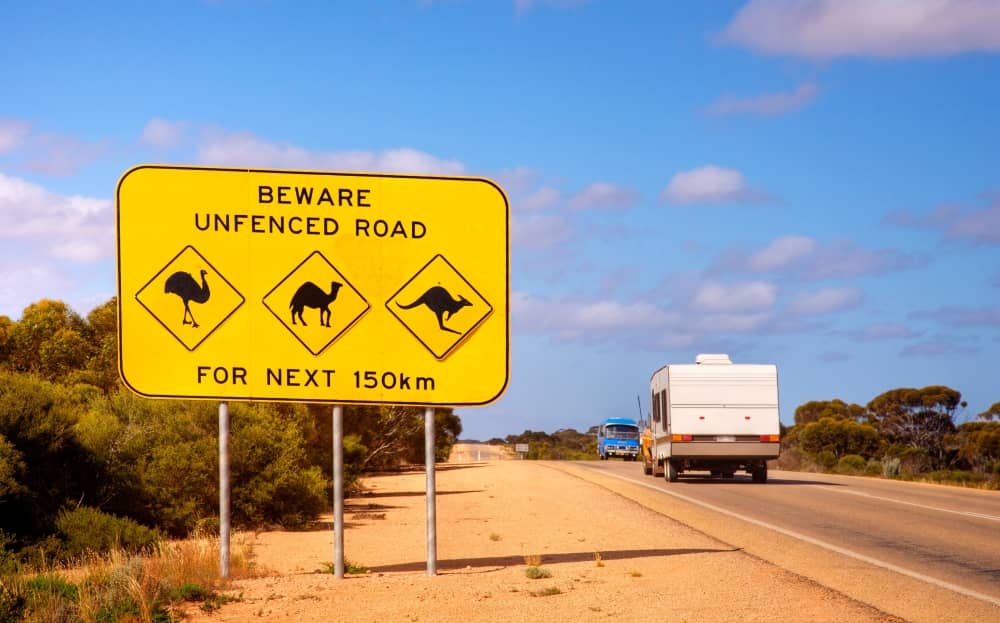Towing a caravan through the outback is the true definition of an off-roading adventure.
But the extra weight of towing a caravan and the unforgiving nature of the outback demand extensive preparation to ensure a safe, fun, memorable trip.
Here are the best tricks on how to tow a caravan, including safety tips when towing a caravan and the most important 4WD upgrades to consider.
10 Caravan Towing Tips: How to Tow a Caravan Safely
1. Pay Attention to Weight Distribution
Ensuring your 4WD vehicle is properly balanced is a key aspect of staying safe on the road. Poor weight distribution can put you at risk of mechanical malfunctions (too much weight up front) or fishtailing (too much weight in the rear).
Here are some tips to remember when packing heavy items in your caravan or trailer:
- Put heavy items in first, directly over or just in front of the axles
- Keep heavy items evenly situated on each side of the trailer to maintain balance
- Always place heavy items low to the ground
- Avoid carrying heavy items in the car
Medium-sized items can be loaded next, followed by lightweight items last. Always make sure your items are fastened down securely. Never secure a gas bottle to your caravan’s exterior as it puts you at risk of an explosion in the event of a crash.
2. Determine Your 4WD Vehicle’s Towing Capacity
Reference the owner’s manual for your vehicle to check your vehicle’s maximum towing capacity.
Along with referencing the manual to determine towing capacity, make sure to consider other aspects, such as laden mass, payload, and tow ball download. Your towbar’s download should fall under the vehicle’s recommended maximum.
Your fully loaded caravan is legally required to be under your vehicle’s or towbar’s towing capacity.
3. Stay Within the Recommended Speed Limit
Speed is an especially important consideration when you are carrying extra weight behind a vehicle. When towing a caravan or trailer, 100 km/h is the maximum legal speed limit. Always pay attention to speed limits and follow them closely.
And remember, even if the posted speed limit is 100 km/h, 80 to 90 km/h is a safer speed when towing a caravan. This helps prevent your vehicle from becoming hard to manage in crosswinds or sudden uneven surfaces on the road.
Travelling at a slower speed also gives you additional clearance if you need to break suddenly. A max speed of 80 to 90 km/h also allows other vehicles to overtake you safely if needed.
Your vehicle manufacturer may also have specific speed recommendations, so be sure to refer to the owner’s manual.
4. Be Prepared for Extra Wide Turns
When towing a caravan, make sure to anticipate and plan for the possibility of extra wide turns.
Always maintain a clear view out the front of your vehicle, along with a clear view of the side and rear of your 4×4 caravan. Towing mirrors can effectively expand your view and make it easier to ensure a clear line of vision.
If your 4WD vehicle and trailer or caravan combine to be over 7.5 metres in length, you may be allowed to use the adjacent lane when turning as long as:
- Any part of your 4×4 is within 50 metres of the closest point of the intersection
- You cannot turn right or left from your current lane
- You have appropriate signage (see below)
Signs that state, “Do not overtake a turning vehicle” can be purchased to place on your vehicle or trailer. When you have this sign displayed, it gives you the right of way in completing wide turns that use both lanes.
Ultimately, you are responsible for following all road rules and ensuring a turn is safe before you attempt it.
5. Add a Reverse Camera to Your 4×4
Reversing a 4×4 with a caravan is a tricky job, even for the most experienced drivers. Along with being difficult to back up perfectly aligned to your caravan, there are also dangerous blind spots.
Many newer 4×4 vehicles already come equipped with a reverse camera due to the significant increase in safety these cameras provide.
If your 4×4 doesn’t already have a reverse camera, we highly recommend considering one, especially if you travel with small children.
6. Invest in a High-Quality Towbar
Investing in a high-quality towbar that is suitable for your 4×4 vehicle is a crucial aspect of a safe, reliable towing experience.
Opt for a towbar that is approved by Australian Design Rules (ADR) and designed to match your usage intentions and vehicle. Be sure to choose a high-quality tow ball, connections, and hitch as well.
Without a durable towing setup, you are at risk of trailers or caravans bouncing around on rough roads, or even detaching.
7. Have a Hook-Up Checklist
When attaching your 4WD vehicle to your caravan, follow a checklist to make sure you never miss a step.
Depending on your 4×4, caravan, and how much weight you are towing, you may need to deviate slightly from this list, but here are some general steps to get you started.
- Attach your hitch securely before putting the cap on
- Cross your chains before fixing them. Crossing your chains provided an extra measure of security should your hitch come off.
- Attach all necessary electronics for the brake lights and brake controller
- Attach the brake safety
- Disengage the handbrake on the caravan
- Remove the jockey wheel.
- Remove wheel chocks
- Perform a final check to make sure windows are closed, storage containers are secured, the awning is stored away, and all connections are secure. For more information on how to tow properly, check out the blogs by Tow Truck Parramatta.
8. Get an Electronic Brake Controller
If you are towing a caravan, be sure to have your rig outfitted with an electric brake controller, especially if you plan on hauling a good deal of weight.
When you brake, your vehicle will begin slowing down, but your caravan continues moving forward due to momentum.
An electronic brake controller ensures that your vehicle and caravan slow down simultaneously when you break. This greatly improves both handling and safety.
For vehicles with a gross trailer mass over 2000kg, electronic brake controllers are a legal requirement.
9. Consider a Suspension Upgrade
A suspension upgrade is worth considering if you need to increase your vehicle’s towing capacity. Upgrading from your 4WD’s factory standard suspension system also translates to easier handling and better performance on rough roads.
You May Also Like: Do I need a suspension upgrade to tow a caravan?
10. Invest in a UHF Radio
Investing in a UHF Communication Radio allows you to plug directly into channel 40, Australia’s road safety resource. This allows you to get a heads-up on road hazards or radio other drivers.
A UHF radio also enables you to radio other vehicles or emergency personnel for help if you get stranded in the bush. This is especially helpful as cell service in the bush is notoriously unreliable.
Click here to learn more about UHF Radio Installation.
Safety Tips for Towing a Caravan or Trailer
To ensure you are prepared for safely towing a caravan, follow these tips.
- Perform Regular Maintenance on Your 4WD Vehicle — Stay on top of proper vehicle maintenance to ensure your 4WD vehicle stays in good working order.
- Have Your Towing Vehicle Professionally Serviced — Regular service of your towing vehicle ensures it is running properly and ready for all your off-roading excursions.
- Check the Wheel Bearings — Make sure to check your wheel bearings at least once a year to ensure the grease is holding up and that there is no excessive play.
- Check Your Suspension – Make sure your 4×4 suspension is functioning as it should. The addition of up-rated shock absorbers or springs can go a long way in creating a more comfortable ride.
- Be Mindful of Other Vehicles — Be sure to keep a safe distance between your 4WD vehicle and other motorists. If your vehicle and caravan trailer exceed 7.5 metres in total, you are required to stay a minimum of 200 metres behind other long vehicles or similar vehicles towing caravans.
This is true for any roads that are outside built-up areas that only have a single lane in your direction of travel. Unless you need to overtake a vehicle, keep an adequate distance between you and other motorists. Proper space between you and other motorists allows for adequate reaction time and increased breaking time.
- Pay Attention to Parking Restrictions — Pay attention to parking restrictions when towing a caravan. Watch for signage indicating how long you can park on the side of the road in built-up areas. Outside of built-up areas, a vehicle can only be stopped on the road if the entire vehicle and load are on the shoulder.
- Avoid Unsealed Roads — Unless your vehicle has a high clearance and is equipped with specific tyres meant to handle extremely rough roads, it is best to avoid towing a caravan on unsealed roads.
- Allow For Increased Stopping Time — The heavier the load you are towing, the more stopping time you need to allow.
- Don’t Rush — Take your time preparing and checking your towing vehicle over.
- Test the Caravan Lights — Test all of your caravan lights to make sure they are working properly.
- Check the Connection — It is extremely important to ensure your caravan is hitched properly before you leave.
- Check Your Tyres — Always use a tyre pressure gauge to check the tyre pressure before heading off on a trip. Be sure to check tread quality as well. Ensuring proper tyre pressure and good tread quality reduces your risk of experiencing a tyre blowout.
- Follow Towing Regulations WA — Be sure to adhere to Towing Regulations WA when towing a caravan or trailer. These road rules apply to any motorist towing a caravan, boat, camper trailer, and more.
For more tips on how to prepare your 4×4 for adventuring in the outback, check out our Guide to Prepare Your 4×4 For an Off-Road Trip.
Need More Caravan Towing Tips?
If you have questions about towing a caravan, are curious about the best car for towing a caravan, or want to learn more about suspension upgrades for your 4WD vehicle, contact our technicians today.
Elite Tune is Perth’s leading 4×4 and 4WD performance workshop and our skilled team is here to help you get the most out of your off-roading experience. From professional vehicle servicing to a wide range of 4×4 modifications and upgrades, we can help you get the performance you need out of your 4WD vehicle.
Book an appointment with our expert technicians today for all your 4WD service or modification needs.



